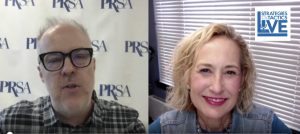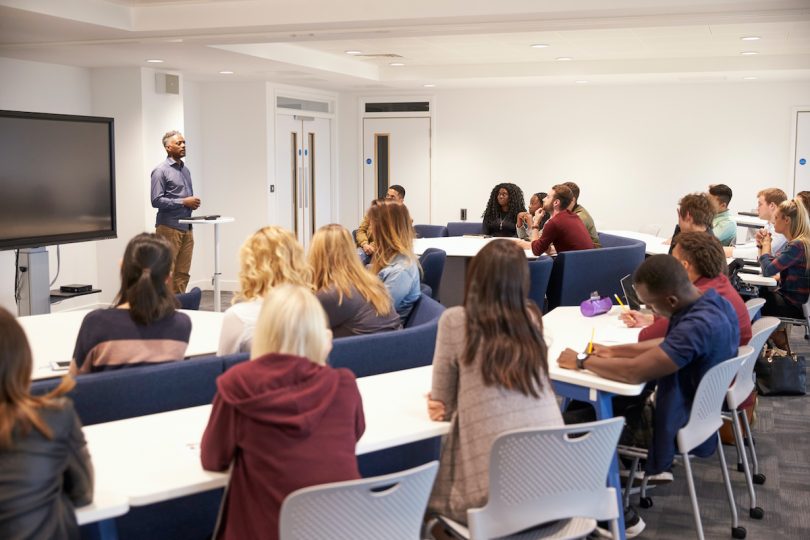Regaining public trust in the news media is a “challenge for journalism and ultimately for society,” said Marie Hardin, dean of the Donald P. Bellisario College of Communications at Penn State University. To that end, “we must do a better job of helping young people understand the value of news and information in a democracy.”
Public trust has eroded in all major institutions, including higher education. “It took a long time to get here and it will take a long, sustained effort to get to where we need to be,” said Hardin, guest speaker for the May 19 episode of Strategies & Tactics Live, PRSA’s free monthly webinar series on LinkedIn. During the event, its host John Elsasser, editor-in-chief of Strategies & Tactics, extended his interview with Hardin that was published in the May issue.
 When the internet first emerged in the 1990s, it was expected to enrich society by facilitating the free flow of information — not to mislead people and create division. “We were wrong in some of our early assumptions about the potential of these digital technologies,” Hardin said. “We’re going to have to harness those digital technologies as part of the solution.”
When the internet first emerged in the 1990s, it was expected to enrich society by facilitating the free flow of information — not to mislead people and create division. “We were wrong in some of our early assumptions about the potential of these digital technologies,” Hardin said. “We’re going to have to harness those digital technologies as part of the solution.”
In an era of exaggerations, misrepresentations and outright falsehoods spread deliberately by politicians, the news media and other public figures for self-serving reasons, teaching media literacy is “pretty daunting,” Hardin said. “But alarm bells have started ringing and we’re all hearing them.”
In university journalism and public relations programs, she said, expertise is needed across disciplines to teach students to discern between trustworthy, quality journalism and partisan distortions.
What we now popularly refer to as “misinformation” and “disinformation” — that is, untruths propagated unintentionally or intentionally — “is not new,” Hardin said. “What concerns me most is what we’re seeing right now, where the marketplace of ideas is flooded with falsehoods and divisive rhetoric that cognitively overload people.”
In its College of Communications, Penn State University offers a class called “Media and Democracy,” in which faculty and students discuss the idea of “information integrity.” The phrase refers to news and information that is “true, useful, clear and correct” and can “enhance the quality of society,” she said.
Serving the greater good
The U.S. news media is supposed to serve the public interest by keeping people informed so they can participate in their democracy. But as trust in institutions has fallen across the board, a perception has arisen that public interest has been sacrificed to private interests.
“PR practitioners and students should think about serving the greater good in society to improve trust in institutions,” Hardin said. “I think public relations has a special role there.” Today’s PR and journalism students “want to move the world in the direction they want to see it go,” she said.
Students need space to grow and space to fail, she said. As they earn degrees and venture into the working world, Hardin urges PR and journalism graduates to remember that “your first job does not set your destiny.” If the work doesn’t reflect your passion, then you can move on.
At the same time, however, graduates should “go into their first job determined to make a great impression” by demonstrating a strong work ethic and integrity in their interactions with co-workers, she said.
Thinking beyond their own personal gain, today’s “PR students are eager to leverage their careers for public good now more than ever before,” Hardin said. “It’s exciting and it gives me hope.”
You can watch the playback via this link.
[Photo credit: adobe art]







